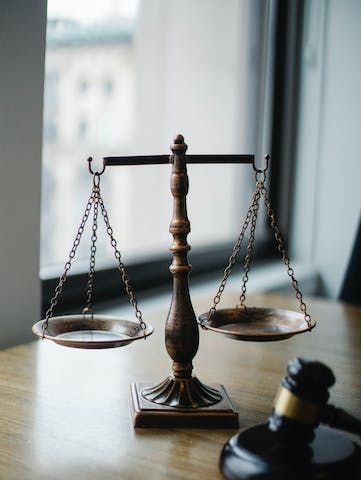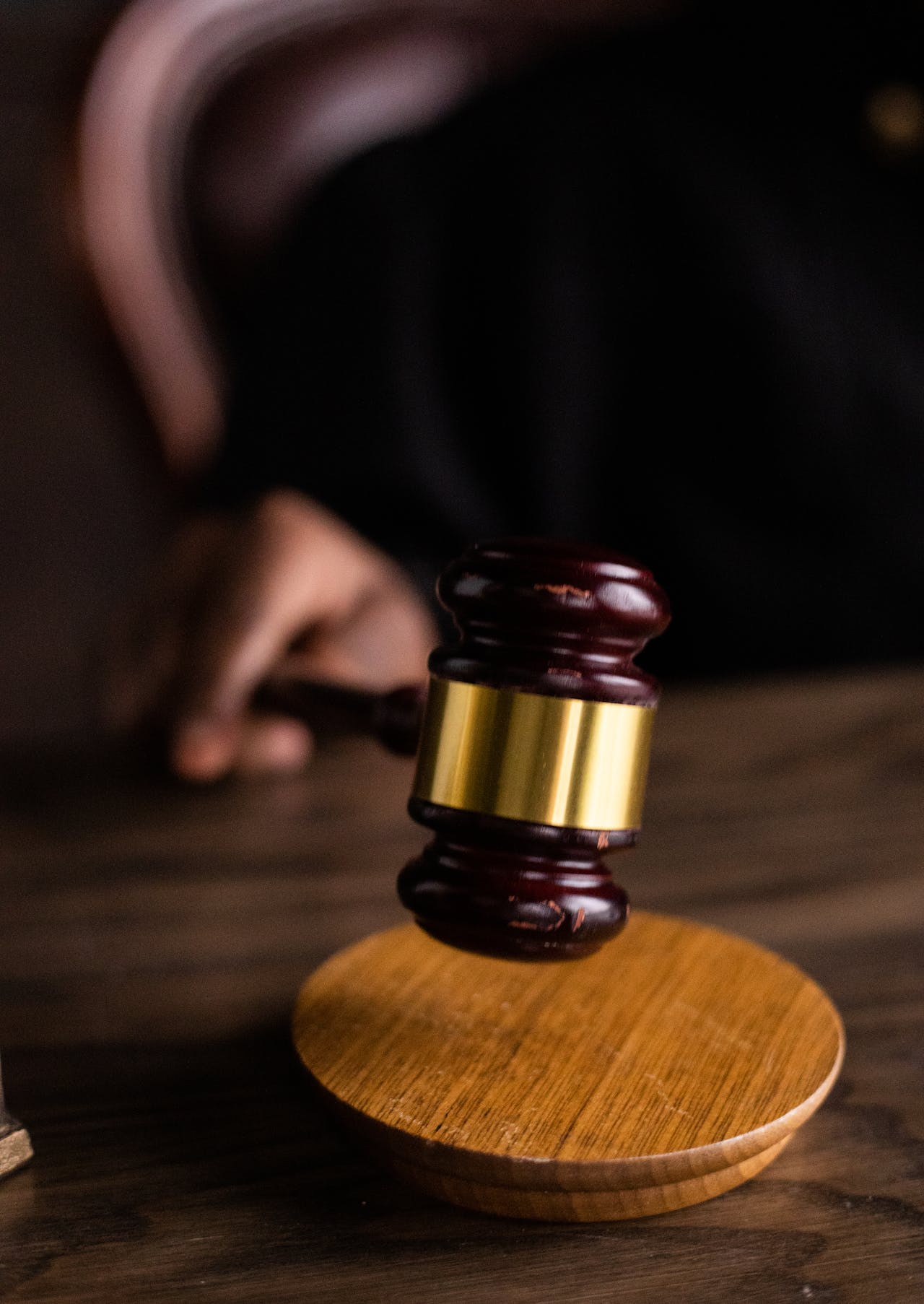- Benefits of Planning Your Estate
- What Are the Trust Laws in NY?
- How Does a Trust Work in New York State?
- What Assets Can Be Held in a Trust?
- What Cannot Be Held in a Trust?
- What Is the Difference Between a Will and a Trust in Brooklyn?
- Estate Settlement & Distribution of Assets
- Can a Trust Be Contested in Brooklyn?
- Trust and Estates Attorney Brooklyn: FAQ
- Call Our Brooklyn Trust and Estate Lawyers Today
Having a trust and estate plan in place ensures that your family and loved ones can receive all of your assets with as much discretion, ease, and security as possible after your death. At Lugara PLLC, our trust and estates attorneys work with each of our clients one-on-one to create a strategy that best suits each of your individual financial needs, both during your lifetime and after your passing.


Benefits of Planning Your Estate
You work hard for your family, so knowing that you have planned for their long-term well-being and financial security can bring comfort. A proper estate plan provides you the opportunity to protect your wealth, distribute your property, establish care for your children, and otherwise express your wishes upon your death. Without a proper plan in place, a court may determine how your property is distributed, who cares for your children, and even what happens to your pet – making decisions that might not reflect your desires.
Having a robust and thorough estate plan in place can help ensure that all of these matters are handled according to your wishes. A trust safeguards your property away from the public probate process and allows it to transfer smoothly to your beneficiaries. A living trust can even offer tax benefits, insulation from divorce proceedings, protection from creditors, and assistance to those with special needs before a person’s passing.
Whether you are planning the parameters of your future medical care or establishing support for loved ones upon your death, our Brooklyn trust and estates attorneys can help with all aspects of your trust and estates, including:
- Revocable & irrevocable trusts
- Medicaid planning
- Last will & testament
- Estate tax issues
- Living wills
- Health care proxies
- Powers of attorney
What Are the Trust Laws in NY?
Trusts are governed under New York’s Estates, Powers and Trusts laws. A trust may be established for any lawful purpose to safeguard or dispose of various kinds of property. Charitable trusts, on the other hand, must be established to dispose of property for religious, charitable, educational, or benevolent purposes. They do not have to have specific beneficiaries named in order to remain in effect.
Under New York laws, a lifetime trust can also be established while a person is still living, instead of through their will. A lifetime trust is irrevocable unless otherwise specified; however, revocable lifetime trusts are relatively common in Brooklyn. Revocable living trusts can be modified, added to, or even destroyed during the grantor’s lifetime.
How Does a Trust Work in New York State?
A trust is a fiduciary agreement between three parties: the trust maker, the trustee, and the beneficiary. The trustmaker, or grantor, transfers care of their assets to the trustee, who is then charged with managing the assets on behalf of the eventual beneficiary or beneficiaries. The trustee is never the owner of the assets, even in the interim period where they remain in trust.
What Assets Can Be Held in a Trust?
Any assets that you want protected by the trust must be retitled in the name of the trust. Retaining the services of a Brooklyn trusts and estates attorney is often the best way to ensure that the process is done accurately and per state law. Examples of assets that can be held in trust include:
- Real estate
- Insurance policies
- Bank and certain investment accounts, such as savings accounts, checking accounts, money markets, certificates of deposits (CDs), mutual funds, and brokerage accounts
- Bonds, stocks, and other investments
- Safety deposit boxes and their contents
- Personal property and collections (e.g. artwork, antiques, and theatrical or sports collectibles)
- Cryptocurrency
- Limited liability companies (LLCs)
What Cannot Be Held in a Trust?
Not every asset can be placed into a trust, and it is important to know what kinds of assets to exclude. Examples of accounts, property, and assets that cannot be held in a trust include:
- Medical savings accounts (MSAs)
- Health savings accounts (HSAs)
- Retirement accounts, specifically IRAs, 401(k)s, and 403(b)s
- Foreign-held assets, like property outside of the US, collections kept abroad, and foreign bank accounts
- Cash
- Vehicles
What Is the Difference Between a Will and a Trust in Brooklyn?
A will is the first step in establishing a comprehensive estate plan. A will helps coordinate the distribution of your assets after your passing and specifies your wishes ahead of time. A will cannot help your heirs pay less in taxes, and in some cases, your heirs must still go through probate even with a will in place.
Assets distributed via a will are part of the public record in New York State. A will cannot delay asset distribution after your death or create a longer-term plan in place for minor children to be financially supported. Everyone should have at least a will in place before their death to ensure that the state is not the main party in charge of deciding how their property will be distributed, but a will is often only the first step in drafting a larger, more complete estate plan.
How Trusts Work
A trust, on the other hand, goes much further than a will in protecting your property and assisting your heirs. Assets in a trust are protected from probate and public disclosure, meaning that your heirs can receive what you are leaving them through a much simpler process. A trust also offers the grantor the option to delay the receipt of assets, which can help ensure that minor children receive only a certain amount of money each year until they come of age.
You might also want to set up a trust with the help of a Brooklyn estates attorney so that an adult with special needs can receive care while remaining eligible for state services, or so that a relative with many creditors can have some money set aside that cannot be eaten away by debt. While a trust takes more work to establish, it also offers more control, privacy, and structure for your overall estate plan.
Estate Settlement & Distribution of Assets
The professionals at Lugara PLLC draw upon their extensive knowledge of New York’s probate laws to guide you through the complex process of settling an estate. Whether the matter involves probate (where a person died with a will) or administration (where a person died without a will), our New York trusts and estate lawyers can assist in all steps of the process, including:
- Creation of a plan of action to probate/administer the estate
- Submission of all required Surrogate Court filings
- Valuation of the estate
- Paying taxes & other debts
Can a Trust Be Contested in Brooklyn?
It is possible to contest the establishment or structure of a trust in Brooklyn. This process is different from disputing a will and should only be undertaken with the help of experienced Brooklyn trust and estate attorneys. With a trust dispute, the party challenging the legitimacy of the trust bears the burden of proof.
Only those with a legal standing, like an heir or a beneficiary, can contest a trust. They must illustrate that the person who made the trust did not understand the nature of the agreement or the full extent of the property involved, or that there was a problem of undue influence between the grantor and the beneficiary or the trustee. For example, if someone created the trust while suffering from dementia or another cognitive impairment, they may not have realized the full extent of their actions or lacked the capacity to make financial decisions for themselves.
When a dispute arises between beneficiaries, it is important to have a firm on your side that has the experience and confidence to protect your interests. Lugara PLLC possesses the knowledge to challenge invalid wills or defend valid wills against the improper assertions of dissatisfied beneficiaries; ensure that the fiduciaries charged with protecting and distributing the estate’s assets are properly performing their duties; and guard against improper claims from creditors and others seeking to claim an interest in the assets. Skilled in mediation and litigation, Lugara PLLC can negotiate between beneficiaries to preserve relationships or fastidiously pursue your rights in court when necessary.
Trust and Estates Attorney Brooklyn: FAQ
The following represent some frequently asked questions about setting up living trusts, revocable trusts, and navigating overall estate plans for people in Brooklyn:
How Long Can a Trust Last in Brooklyn?
Different kinds of trusts last for different periods under New York’s estates powers and trusts laws. Most trusts are financial, and therefore naturally end when there is no longer any money in them. For instance, if you set aside a trust for your child’s college tuition, the trust will end once all of the funds are distributed.
Most living trusts end upon the death of the grantor, and the assets are distributed to the beneficiaries, such as your heirs or any charities or organizations that you have previously specified. A testamentary trust begins operating after your death and is established by your will. Either a living trust with specific parameters or a testamentary trust can be used to provide for beneficiaries after you are gone and can continue past the time of your death.
Does a Beneficiary Have a Right to See the Trust in Brooklyn?
In Brooklyn, beneficiaries have certain rights regarding trusts, including the right to information. Trustees must provide clear, timely, and accurate information regarding the state of the trust in their care. An executor of a trust must account for assets held in the trust, as well as provide regular statements showing expenses and distributions.
Can Money Grow in a Trust?
The answer depends on what kind of assets are held in the trust. If your trust contains assets like savings accounts, CDs, and mutual funds, then you may very well find that money continues to grow in the trust. You also can designate a trust as the owner of future interest for property that you do not yet hold, but expect to, and find that your trust grows in that way.
Should Bank Accounts Be in a Trust?
Not every bank account should be in a trust. For instance, liquid bank assets like daily checking accounts or lower-value accounts do not need to be held in a trust, and doing so may interfere with your daily activities. When deciding which accounts to place into a trust, remember that a trust takes over ownership of assets.
Some people choose to create a living trust before investing in a new business or getting married so they can insulate some of their assets from these changes. Many people with higher-value bank accounts opt to place them into a trust as part of a larger estate plan. The specifics of your needs can be discussed in a consultation with our trusts and estates Brooklyn lawyers.
What Happens to a Trust Bank Account When Someone Dies?
If your bank account is controlled by a trust upon your death, the trustee will be in charge of distributing your assets. They will be able to account for, manage, and distribute the money held within the bank account without reporting it to probate in Brooklyn. This can save all beneficiaries and heirs substantial time and money, while also keeping the contents of the trust private.
Who Controls the Money in a Trust?
The trustee, often a lawyer, financial professional, or other neutral third party, will control the assets placed into a trust. They will be accountable to both the grantor (under a living trust) as well as the beneficiaries of the trust after the grantor’s passing. The trustee has a fiduciary duty to handle the trust responsibly.
Does a Trust Avoid Probate in Brooklyn?
Yes. One of the many benefits of establishing a trust is that it allows your heirs to avoid probate court. This also keeps your assets private, instead of a matter of public record, upon your death.
Call Our Brooklyn Trust and Estate Lawyers Today
Having a proper estate plan in place is the best way to protect and care for your family after a death. With the help of a trust and estate lawyer, New York law does not have to dictate what happens to your children, loved ones, pets, and property after you pass away. You have the option to create a customizable plan that can suit the needs of your unique financial picture and provide security for your loved ones for years to come.
Contact our trust and estates attorneys in Brooklyn to begin the planning process today.



